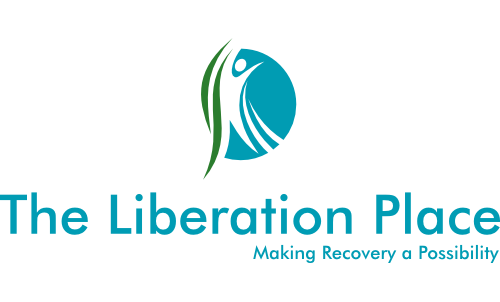The How Skills
Now that we have discovered What we do to practice mindfulness from a DBT perspective, it’s time to explore How we do it. The How Skills are intended to provide the framework for how we Observe, Describe, and Participate in our daily activities. Remember, practicing mindfulness from a DBT perspective is done by incorporating a mindful approach into things you are already doing, so there is absolutely no need for additional time to complete your practice. The How skills fall into 3 particular categories of reference which are, taking a non-judgemental stance, or what’s known as practicing it Non-judgementally, focussing on one thing in the moment, or what’s known as practicing it One Mindfully, and doing what works, or what’s known as practicing it Effectively.
If we follow this framework for how to complete our daily practice of mindful activities, then we will automatically be drawing our attention to the different stories we have about the world as well as beginning to build our Self-awareness in the process too. What is probably for most of us, a newfound level of Self-awareness is absolutely key to accessing all of the other skills we have available to us through the Dialectical Behaviour Therapy model of Living the Life you Want to Live. Without Self-awareness, we simply react to situations based on the stories we have about what’s happening, and these stories are often a re-enactment of the past, rather than an accurate representation of what’s happening right now. That doesn’t mean we have to disregard the story and treat it as a complete fabrication, mindful awareness gives us the ability to dialectically examine the situation we are in, choosing how to behave in a way that is effective for us, rather than blindly reacting to the story we have in old familiar ways.
“Mindful awareness gives us the ability to dialectically examine the situation we are in, rather than blindly reacting to it in old familiar ways.”
~Steven Morris RP.
Before we get into each of the How Skills individually, I want to remind you of the importance of following my motto when it comes to all of the skills I’m trying to teach at The Liberation Place. Practice, practice, practice is key, and when you think you’ve practiced enough, practice some more. This is particularly important in the DBT model because we are trying to create new, habitual ways of coping with situations that are traditionally overwhelming for what can be an emotionally sensitive system. When we enter a place of emotional overwhelm, we go outside of our emotional threshold, into what is commonly known as a state of fight or flight. The part of our brain that’s responsible for thinking things through is no longer active. At this point, we will automatically fall into the same old ways we have coped in the past, so practicing our new behavioural responses to the point of “overlearning” them means we won’t fall back into our old habitual ways, even when we don’t have the ability to cognitively process what’s going on.
NON-JUDGEMENTALLY
Taking a nonjudgmental stance means exactly what it says on the box, not judging something as good or bad, right or wrong, black or white, or any of the other subjective points of view we can often attach to things. At the same time, it doesn’t mean going from a negative judgment about something, to a positive judgment about it, as this would still be a judgement, just not a negatively impactful one. Although most of us can often judge not only ourselves but also other people in both excessively positive terms and excessively negative terms, the position we are trying to take is not that we should be more balanced in our judgments, more that judging should, in most circumstance, be removed from the process altogether. This is a very subtle point I am trying to make, but an incredibly important one. The problem we create by judging is that, for instance, if we label a person as “worthwhile” we can always switch that label when something happens so that they can become “worthless.” In Dialectical Behaviour Therapy, instead of judging, we try to Observe and Describe what’s happening in a non-judgemental way to remove the emotional impact of our subjective perception that would previously overwhelm our emotional system, sending us into the same old ineffective coping mechanisms.
“Although most of us can often judge not only ourselves but also other people in both excessively positive terms and excessively negative terms, the position we are trying to take is not that we should be more balanced in our judgments, more that judging should, in most circumstance, be removed from the process altogether.”
~Steven Morris RP.
The goal is not to replace “bad” with “good,” to switch “worthless” for “worthwhile,” or to make other similar kinds of replacement to our internal and external vocabulary. As I previously said, if you’re good, you can always be bad; if you’re worthwhile, you can always be worthless. Taking a rigid perspective on the use of language, like changing a negative judgment into a positive judgment, runs the risk of becoming absolute. This can and will cause problems by hiding the negative consequences of an event. For example, if you become absolute on your judgments, removing the negative to replace with the positive, you could find yourself labeling a rotten piece of meat as good instead of bad which could cause someone to eat it and then get sick. While this is an extreme example, I often find this is the case when people hear this type of philosophy, removing words like “should” and “but” from their language because of the idea that it is bad to use them. We are not trying to change the language of the evaluation, instead to eliminate evaluations entirely.
ONE MINDFULLY
Understanding DBT from a mindfulness perspective has to do with the level of self-awareness we bring to our activities. The second DBT How skill is to focus the mind and awareness in the current moment’s activity, rather than splitting our attention among several activities or between the current activity we are involved in and thinking about something completely different. This is the essence of the DBT skill known as doing things One Mindfully. Obviously, mindfulness is a critical part of developing Self awareness, and there is definitely no right or wrong way to practice it. Whether you’re experiencing your mindful awareness through Yoga, silent meditation, guided meditation apps on your phone or through YouTube, it really doesn’t matter, as long as you are developing your ability to experience the benefits of building your Self Awareness.
“Brain imaging research has shown that when individuals begin to Describe their emotional responses, the very act of labeling the emotion changes the way the brain responds, moving away from distress in the direction of Emotion Regulation.”
~Steven Morris RP.
Through my education and my own personal practice of daily mindful activities, I try to look at this part of my own journey from my best understanding of a DBT perspective that I possibly can. The original guru of DBT, Marsha Linehan, acknowledges that in today’s busy world, it is difficult for many people to find the time to sit in a state of silent meditation and open their mind, not only to what’s happening around them, but also to what’s happening within. If you are someone who is able to practice mindfulness in this way, fantastic, keep doing it, please do not stop. However, if you are someone, like me, who struggles to find the time to practice mindfulness in this very effective way, doing activities One Mindfully is also an extremely beneficial way to develop our Self awareness without actually interrupting the flow of our day.
In Dialectical Behaviour Therapy we practice the art of One Mindfulness by building our ability to Observe, Describe, and Participate into our daily activities, doing the things we are already doing One Mindfully, without a sense of judgment. In other words, we pick an activity that does not require any mental processing, something that you don’t really need to use a lot of energy thinking about. For example, I can practice One Mindfulness while washing the dishes, cutting the grass, walking the dog, driving my car, or cooking and eating my food. When I participate in any of these activities, I focus my mind on the activity itself, noticing what sensations I am experiencing through the use of my senses. As I participate in the present moment, I begin to notice what’s happening in my thoughts, Observing the parts of my personality that are engaging, trying to take me away from the moment I am in. I describe what part it is that’s engaging in my system, nonjudgmentally, and then I bring my attention back to the present moment, focussing my mind back to the activity I am participating in
EFFECTIVELY
The third How skill, being effective, is aimed at reducing our tendency to be more concerned with being right, over what is actually needed in the situation to help us achieve a beneficial outcome. Marsha Linehan says in her manual for Dialectical Behaviour Therapy Skills Training, “Effectiveness is the opposite of cutting your nose off to spite your face,” and if you think about it, this statement is incredibly accurate. Our inability to let go of being right is the essence of rigidity, and it often stems from our experience of being raised in what I call invalidating childhood environments. Not being heard, understood, appreciated, supported, or generally just loved are all basic childhood needs. Failure to experience these needs being met in a healthy way leads to an excessive desire for the needs to be met as adults, usually at the expense of effective outcomes.
“Marsha Linehan says in her manual for Dialectical Behaviour Therapy Skills Training, Effectiveness is the opposite of cutting your nose off to spite your face, and if you think about it, this statement is incredibly accurate.
~Steven Morris RP.
Acting effectively is doing what works to achieve our goals. Without the use of this skill, it is difficult to achieve the things we want to achieve, reduce our suffering, and even increase our own sense of happiness. Being right to prove a point may feel good at the time, but it is often at the expense of important relationships or achieving an effective outcome in a situation. Effectiveness requires knowing what will and what won’t work to achieve our individual goals. If you are anything like I used to be, most of the time, I knew what was and what was not an effective thing to do if I felt calm and was in a space that was safe. This way my stories weren’t activated, there was no fear in my system, and I was able to think about my options in a clear and helpful way. At other times, however, this was definitely not the case, and my ineffective behaviours were a reaction to the fear that was triggered by the story in my system.
An openness to experimenting, to staying aware of the consequences of what we do, and sufficient humility to learn from our mistakes are essential to effectiveness. All in all, following the DBT How skills provide the framework for how we practice the What skills. As we discover later on in the DBT Skills training model, without the effective practice of mindfulness, rarely will the other skills be available to us when we are emotionally activated. So, as I previously stated, find a way to practice, practice and practice these skills, and when you think you have practiced enough, practice some more!
Download the How Skills PDF
Follow us on Social Media





